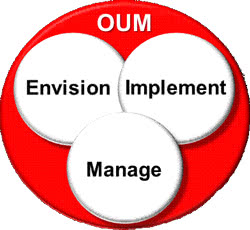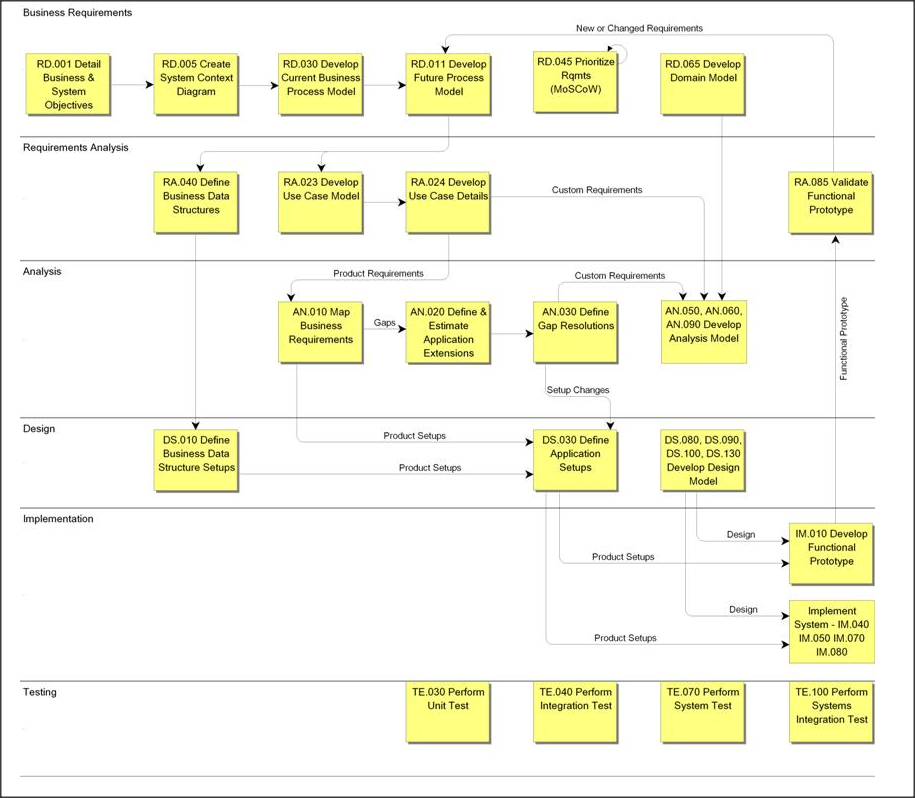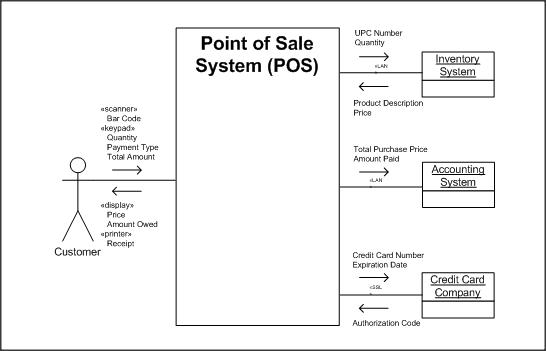ERP
OUM Differs From The AIM Methodology

A person asked a very good question at this year’s Oracle Open World: how does Oracle Unified Method (OUM) differ from Application Implementation Method (AIM) in terms of methodology and deliverables?
AIM’s retirement date was January 31, 2011. Going forward, OUM supersedes AIM.
One of the big advantages is that it now entails BI and EPM projects and follows Oracle’s strategy to bring all applications under the same methodology. In v5.3 it now also includes PeopleSoft, JDE and Siebel products.
OUM is an iterative methodology, it follows best practices. An iterative approach embraces requirements changes by building processes into the project that allow for refining while also maintaining a strong focus on cost and scope containment.
Since OUM is an iterative approach to implementing software systems, it is essential that practitioners first understand the concepts of iterations “Think a little-do a little. Think a little more–do a little more.”
Below is the OUM Implement Core Workflow View, which was created to identify the core tasks within the Implement Focus Area. This view should serve to accelerate the understanding of OUM by new practitioners and help to keep project teams focused on these tasks. The delta with AIM is of medium complexity.
OUM emphasis in on a graphical representation, this is done intentionally since we all know that text can be misinterpreted. Below is an example that comes with the System Context template of OUM (Deliverable RD.005):
The System Context Diagram above is a graphical representation depicting the boundary of the system and its association with external entities called actors. An actor can be one of four types (i.e., human, another system, a clock representing a time-based event, or a hardware device). These actors have the ability of sending or receiving information and/or events into or out of the system. The key information represented on the association line between the actor and the system is at a summary level and shows an arrow indicating the direction of the information flow.
Oracle Partners meeting the access requirements described (You must be an Oracle Gold partner, unlike AIM where it was readily available) to obtain the OUM materials. To access the method pack, related collateral, and training courses:
- Go to the OPN Portal.
- Select the “Partners (Login Required)” tab.
- Login using the your OPN Portal username and 12 digit PIN.
- Select the “Engage with Oracle” tab.
- From the Engage with Oracle page, select the appropriate tab.
- From the tab, select the appropriate “Knowledge Zone”.
- From the page, select the “Implement” tab.
- From the Implement tab, scroll to the bottom of the page and select “Access more”.
- From the page, scroll down to the PRODUCT INFORMATION section.
- Locate the “Methodology” or “Methodologies” sub-section.
- Select the “Oracle Unified Method (OUM)” link to access and download the materials mentioned above.
- The zip file is encrypted. Please send an email to opn-edu_ww@oracle.com to request the password. Please be aware that it may take a few days for the OPN team to process your request.
OUM obliges a standardization of implementations across all Oracle products, which is a good thing in my view. You can also tailor OUM to support your specific project situation. With its ready-made templates, guidelines and scalable work breakdown structure, the emphasis on graphical representation and the iterative approach are the main improvements over AIM.
[This post originally appeared on Alex Antonatos’ blog on AppsConsultant.com and has been republished with permission]







